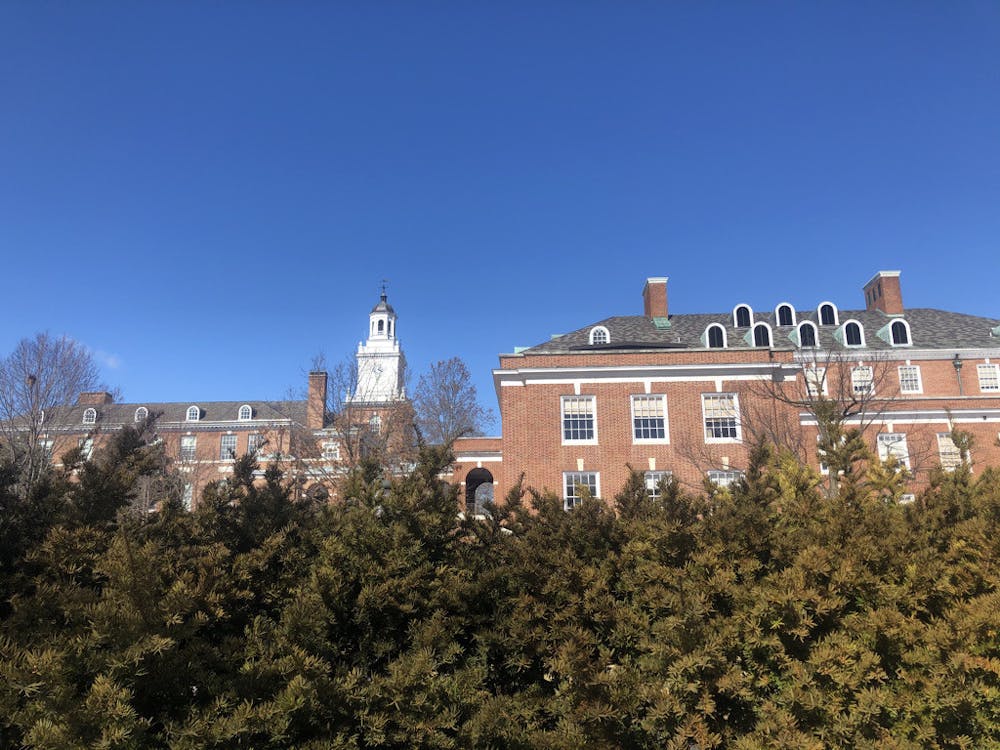The Program in Racism, Immigration, and Citizenship (RIC) hosted a roundtable discussion, titled “A Department of Reparations?” on Sept. 13. The event assessed new directions in the study of racism, diaspora and indigeneity at Hopkins.
The roundtable featured guests Lisa Lowe, a professor of American Studies and Ethnicity, Race and Migration at Yale University, Adom Getachew, a professor of Political Science at the University of Chicago, Nathan D. B. Connolly, a professor of History at Hopkins and recent graduate Joyce Wang.
Connolly opened the event with a few remarks about the University’s past. He named Herbert Baxter Adams and his students Woodrow Wilson and Thomas Dixon, Jr., both of whom perpetuated white supremacist ideologies, and explained how their racist actions impact the University today.
“Adams, [Wilson and Dixon’s] teacher, believed political science, history and the emerging academic disciplines of the late 19th century should celebrate the quote, historical progress of our race,” he said. “This legacy represents part of the inheritance of this university and outwards from Hopkins the inheritance of every major research university in the United States.”
Connolly emphasized the importance of the University making reparations for its racist past. He highlighted some current efforts, such as a donation of $300,000 to a local Black freedom school that supplements the limited cultural offerings of Baltimore City Public Schools.
Wang followed Connolly’s statements with a discussion of the undergraduate students’ goals behind the Critical Diaspora Studies program at the University.
“We don't want academia overall to be some kind of ivory tower phenomenon. We want it to be able to apply to the people around us, especially to the communities around us,” she said. “At [Hopkins], we are in a context, both physically and intellectually, to be able to apply the knowledge that we receive to people around us.”
Wang joined and co-led the push for a Critical Diaspora Studies major at Hopkins in 2021 alongside fellow undergraduate students.
In an email to The News-Letter, junior and event attendee Frank Meng emphasized the necessity of undergraduate voices in inspiring institutional change.
“Students are the initial force that pushes for institutional changes, and we must reject the notion that the status quo is the only viable and sustainable solution,” he wrote. “Instead, we need to demand an alternative future that abolishes the current problematic institution deeply rooted in hegemonic antiblackness, capitalism, and colonialism.”
Getachew noted that undergraduate activism played an important role in the establishment of the new Race, Diaspora, and Indigeneity (RDI) program at the University of Chicago. She described the program as a product of student interests and faculty expertise.
“RDI emerged from a thought that by centering a set of critical concepts and by putting them in relation to each other... that we would create the largest umbrella framework in which not only could we see [faculty] continuing the work we were doing, but envision bringing in new faculty and creating a really robust program,” she said.
Lowe discussed recent changes to Yale’s Ethnicity, Race and Migration department. The program started partly because of student activism, but for many years it did not have its own faculty. After some faculty members, including Lowe, refused to teach courses in the department until it was given its own faculty, Yale made the program a free-standing academic unit in 2019.
Lowe commented on the program’s current state and future aspirations.
“Now the program has about 20 faculty,” she said. “It also has aspirations to be global and to look at colonialism in many different parts of the world, and migration as well.”
Some audience members expressed concerns about separating academic institutions' genuine interests in interdisciplinary ethnic studies programs from their desire to sponsor such programs to improve their image.
Wang highlighted that students at Hopkins used this to their advantage, where they emphasized the program’s potential to improve the University’s reputation as they were proposing it.
“The truth is, we do have to basically get that buy-in and tell the administration: Hey, we think this has a spot in the institution,” she said.
In an interview with The News-Letter, sophomore Steven Chen noted how the roundtable gave him a better understanding of the University’s internal operations.
“I got a lot of insight into how the University itself operates,” he said. “While not the explicit topic of the talk, there were a lot of interesting points about how the University itself perpetuates certain power structures onto the rest of society at large.”





